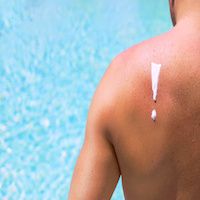Does Your Doctor Approve of Your Choice of Sunscreen?
Routine skincare is especially important when basking in the summertime sunshine.

Routine skincare is especially important when basking in the summertime sunshine.
While sunscreen products can be an easy fix, people often buy the cheapest, best smelling, or cult favorites — and not the ones that actually measure up to the recommended standards of the American Academy of Dermatology (AAD).
The AAD recommends products for sun protection should contain broad-spectrum coverage (SPF) of 30 or higher and be water or sweat resistant. However, a recent study showed that four out of every 10 products “fell short of the recommendations.”
A recent CDC report found that people regularly use products with an SPF of 15 or higher.
Some researchers hoped these findings could incite health professionals to better tailor their skincare recommendations once they understood their patients’ preferences. According to Steve Xu, MD, dermatology resident, Northwestern University Feinberg School of Medicine, “If this is a product that everyone loves, that everyone likes, there should be an impetus for dermatologists to know why people like it.”
To assess this population, the researchers worked to pinpoint the characteristics and the most-cited pros and cons of the best-rated sunscreens by shoppers on Amazon.com.
As such, of the total available 6,500 sunscreen products for the face, body, and children, the research team evaluated reviews of the top 1%, 65 products with the highest number of consumer comments.
The prices of these products ranged from 68 cents to $23.47 per ounce.
The keywords the researchers focused on included:
· cosmetic elegance
· affordability
· product ingredients
· skin compatibility
According to the study, some of the product reviews had comments like:
· it absolutely reeks
· not effective
· I’m absolutely obsessed with this SPF
· I was able to stay out at my children’s soccer games for the entire afternoon with no sunburn
Researchers understand that making informed decisions about healthy sunscreens aren’t easy — sometimes parents grab a bottle with an image of kid on the cover.
Because of the ample selection of products, the study authors encourage dermatologists and physicians to educate patients and families on specialized products and effective product use.